Voices of L.A. Nature: An Interview with Tafarai Bayne
Welcome to our new series, "Voices of L.A. Nature," where we'll hear stories from a diverse range of Angelenos about their relationships with nature in L.A.
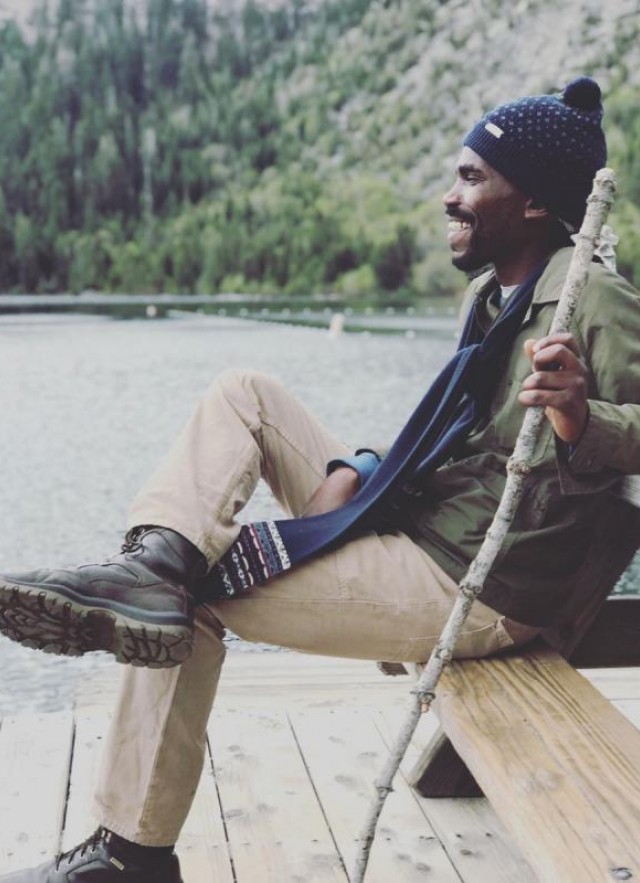
Welcome to our new series, Voices of L.A. Nature, where we'll hear stories from a diverse range of Angelenos about their relationships with nature in L.A. The project kicks off this month, with a series of interviews to celebrate Black History Month.
Interview by Lila Higgins
Tafarai and I have been friends for the past eight years. We've biked along open streets together, had work meetings in local parks, and geeked out in the museum collections during our First Fridays event. He's a self proclaimed 9 out of 10 on the, "I love nature scale." He tries to incorporate nature into his daily life, whether it's making meetings happen in parks, or trying to find the greenest path possible to walk along. Let's delve a little deeper to find out what he really thinks about nature in L.A.!
What nature places did you explore/experience as a kid in L.A.?
We would visit regional Parks like Kenneth Hahn and Centinela Park, and larger spaces like Griffith Park. We would also go to the beach a lot for family trips.
Can you share a memory/story of those times?
I vividly remember going camping for the first time with Uni-Camp which was a UCLA sponsored camping program for inner-city youth. Sleeping under the stars and being woken up by coyotes will always be a memorable experience.
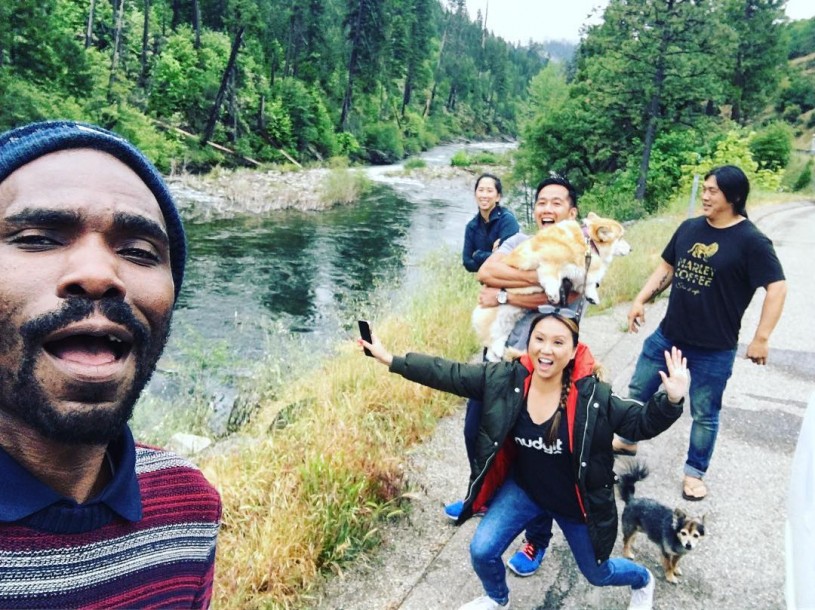
What is your favorite nature space to visit in L.A.? What do you do there, and why do you go?
It's hard to name a favorite. A few I love:
Echo Park Lake. When I was in high school for P.E. our teachers would have us run around the lake. As an adult, it has become an amazing gathering spot for families and adults in general. Passing through there on a Saturday or Sunday is a true L.A. people watching experience. I like stopping by during the workday to handle some e-mails or eat a sandwich.
Elysian Park. I love going up there during the weekdays because it feels like a little secret. A small forest and hiking trails in the shadow of downtown. Whenever I need a deep breath, some perspective and a good break I’ll drive over and hang out for a little bit, watch the city skyline with city hall right in the middle and plan my next move.
Vista Hermosa Park. A new park. It has the most amazing views of downtown and has great walking paths that seem to almost magically make space feel much bigger then it is. I had the opportunity to collaborate with the staff there and sister non-profits to host a campout with a group of youth and their families the night before a CicLAvia so they could experience both the park and open street events in the same 24 hours. It was a special experience.
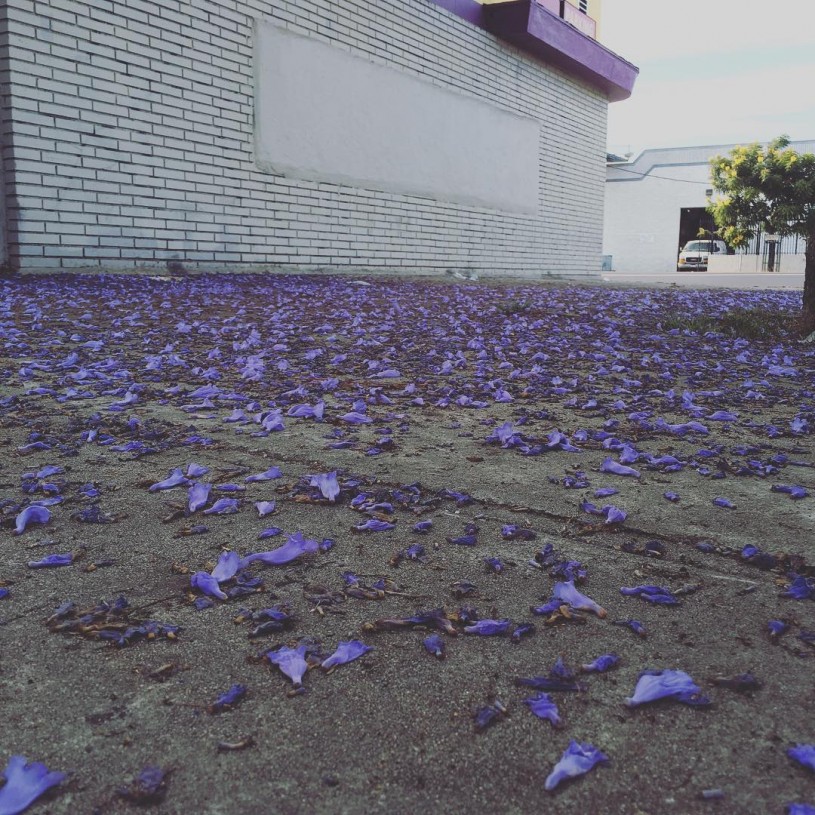
Ciclavia often passes through many of L.A.’s great public parks, how do you see people interacting with these outdoor spaces during Ciclavia?
Well passing by those parks is an intentional act when we look at routing. We see them as amazing assets both to the communities they serve and to the regions they are in, so we want to raise awareness about their existence and highlight public transit options to get to them. We hope this awareness will bring people back and encourage them to seek out these spaces in our city more often (and in some cases demand more of them).
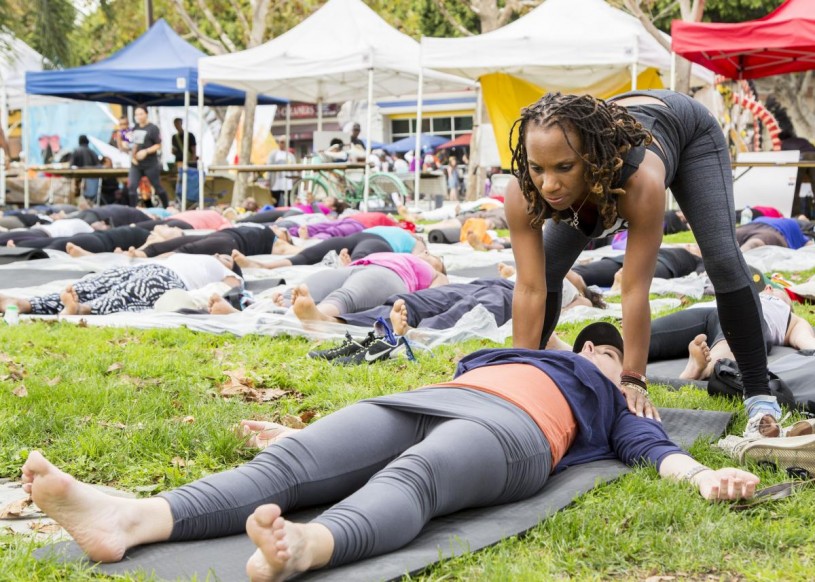
Are there other ways you are thinking of activating nature experiences along the Ciclavia routes?
I definitely think that more overnight urban camping experiences for folks on our routes the night before CicLAvia’s can be a great experience and way to highlight urban green spaces.
Tafarai, I know you attended the recent Zócalo event, Is Nature Only for White People? What did you think about the event and what were your biggest takeaways?
It was a great event. Definitely highlighted issues in regards to access to open and natural spaces and the need for more bridges for urban folks. I believe these bridges are key. Loved hearing about REI's work. Love that place.
How do you think we can make access to nature in L.A. more accessible for everyone? What are some of the biggest barriers?
I think the lack of awareness and access are the biggest things. It’s hard for urban working-class families to take vacations to take their kids out to the woods, and then having the resources to buy appropriate gear and travel. Programs that bring nature to Angelenos and planned group excursions to support them in getting introduced are critical pieces of the puzzle.
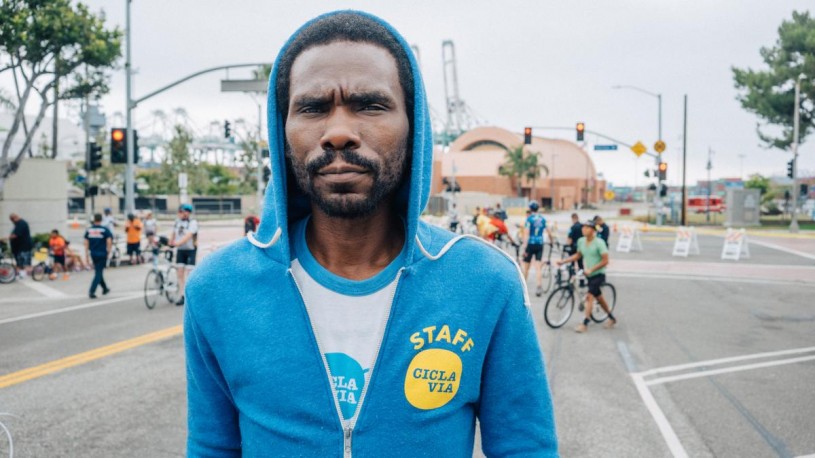
Follow Tafarai:
Twitter: @tafarai
Instagram: @tafarai
(Posted by: Lila Higgins)